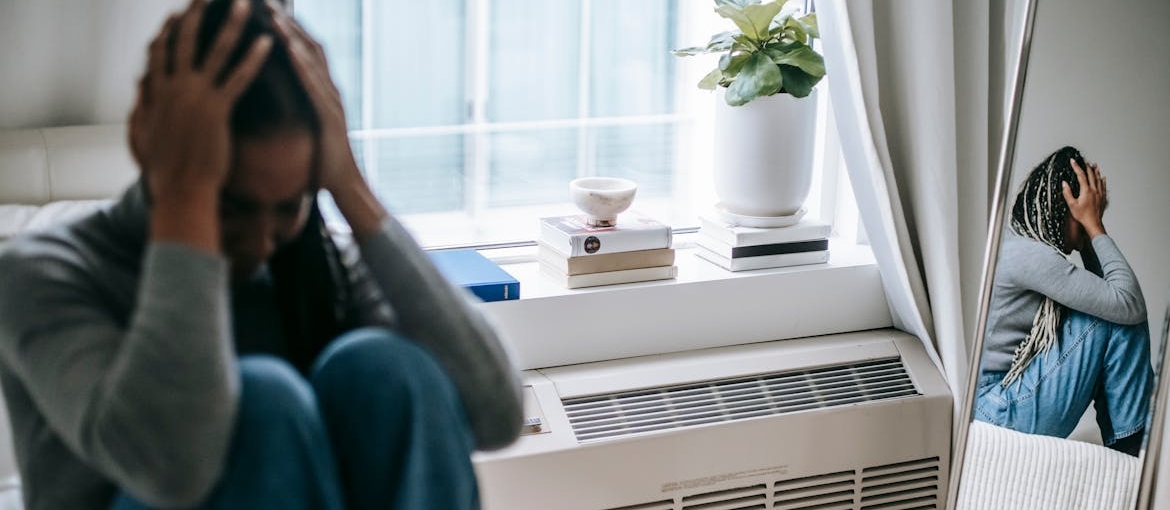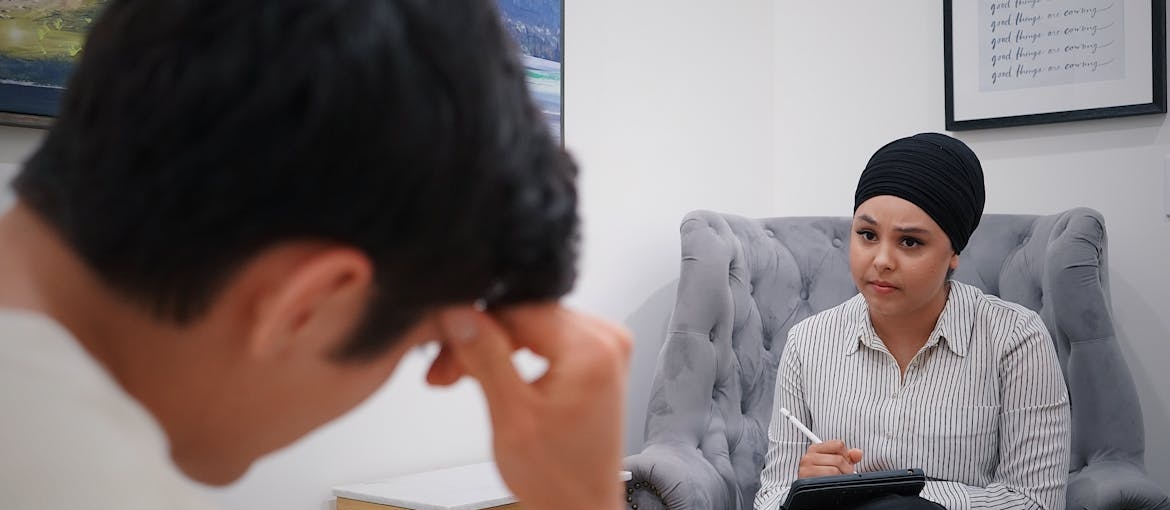Ritalin helps many people with ADHD focus and stay on track. But for some, it turns into something else. Maybe you started using it to study or get through long workdays. At first, it felt helpful. Then came the crashes, the mood swings, and the need for more just to feel okay. That’s when Ritalin stops feeling safe. If this sounds familiar, you’re not alone. Misuse of prescription stimulants is more common than you think. It can lead to real struggles that affect your health, relationships, and goals. The good news is that help is available. Addiction treatment centers in West Virginia offer support that’s judgment-free and focused on recovery. We can help you understand what’s happening and what you can do next. You don’t have to go through this alone.
Ritalin’s Original Purpose and Prescribed Use
Ritalin is meant to help people with ADHD focus and stay organized. When taken as prescribed, it can improve daily life. But when Ritalin stops feeling safe, it often means the use has gone outside what’s considered medical. Ritalin addiction happens when someone relies on it just to feel “normal.” People start needing it even when there’s no task to complete. That’s when it crosses the line.

Doctors prescribe it carefully, looking at symptoms and history. They monitor for signs of Ritalin addiction, especially in teens and young adults. But even then, misuse can slip through. The dangers of Ritalin misuse include mood swings, anxiety, and poor sleep. If you’re asking what are the warning signs of Ritalin misuse, it may already be time to pause. It’s one more sign that Ritalin stops feeling safe.
Why People Start Using Ritalin Without a Prescription
It often starts with a small push—an exam, a deadline, a stressful project. Someone offers you a pill. They say it helps you focus, no big deal. This is how prescription stimulant misuse usually begins. You think it’s just a one-time thing. Then you start needing it more. That’s when Ritalin stops feeling safe. You stop trusting yourself to stay on track without it. A big factor is peer pressure on substance abuse among college students.
People don’t want to fall behind or look weak. The pill becomes a tool to compete, not just concentrate. You might even ask yourself, is it dangerous to use Ritalin to study? The answer is yes—especially when it wasn’t prescribed to you. It changes how your brain works. It trains you to depend on it, not your own focus or motivation.
Early Warning Signs: When Use Starts to Shift
At first, you feel more productive. You’re proud of what you get done. Then something changes. Ritalin stops feeling safe. You crash harder, you can’t sleep, you need more to get the same effect, you feel off when you don’t take it. If you notice these things, don’t wait. A rehab center for young adults can help before it gets worse.
Here are common signs to look for:
- Skipping meals and losing weight
- Feeling anxious, jittery, or paranoid
- Needing higher doses more often
- Using Ritalin in non-academic settings
- Feeling low or disconnected without it

Psychological and Physical Risks of Misusing Ritalin
Ritalin misuse affects your body and mind. It’s not just about the energy boost. When Ritalin stops feeling safe, side effects start piling up. You might lose sleep, lose your appetite, or feel emotionally numb. People often ignore these changes until they feel overwhelmed. Long-term use without a prescription can make things worse. That’s why treatment at drug rehab Point Pleasant WV residents trust is often needed to reset and recover.
Here’s what can happen:
- Mood swings and depression
- Heart problems and high blood pressure
- Poor sleep and extreme fatigue
- Anxiety, panic attacks, or paranoia
- Mental fog and emotional disconnection
When Ritalin Use Becomes a Substance Use Disorder
It doesn’t happen overnight. But for many, the pattern becomes clear. What began as casual use shifts into something more. When Ritalin stops feeling safe, it’s often because it’s become a need, not a choice. You start avoiding tasks without it, you panic when you run out, you feel stuck in a loop. If you’ve ever wondered, can Ritalin be addictive if you don’t have ADHD, the answer is yes. And you’re not alone.
Many young people ask for a guide for young adults in rehab because they’re scared and unsure where to start. Ritalin addiction affects more than your focus—it messes with your mood, motivation, and self-trust. Asking is Ritalin addictive for students without ADHD isn’t just about curiosity. It’s about knowing when to step back. If your body and mind feel worn out, that’s a clear sign Ritalin stops feeling safe.
Getting Help: Treatment Options for Ritalin Misuse
When Ritalin stops feeling safe, it’s time to think about support that actually helps. There are several options that focus on what works for your situation. You don’t have to figure it all out at once. Many people struggle with prescription stimulant misuse, especially students and young adults. These treatment paths are simple, private, and focused on recovery—no lectures, no judgment. Here’s what to know about each step toward feeling better.

Behavioral Therapy and Cognitive Interventions
If you’re wondering how to know if you’re dependent on Ritalin, therapy can help you sort that out. Behavioral therapy focuses on what drives the use. It helps you recognize the warning signs of Ritalin misuse and work through the mental health effects of long-term Ritalin misuse. Cognitive approaches give you practical tools to manage pressure, stay focused, and build habits that don’t rely on pills.
This matters especially if you’ve asked, is Ritalin addictive for students without ADHD? Therapy helps break that cycle and gives real support. Many centers now offer substance abuse treatment WV programs that includes these therapy options. You’ll work with people who understand how prescription stimulant misuse develops and how to treat it step by step. Recovery isn’t about blame. It’s about learning a better way forward.
Group Support and 12-Step Options
You might feel alone in this. But Ritalin abuse in young adults is more common than you think. Group programs give you space to talk to people who’ve been through the same thing. There’s power in shared stories—especially when you’re trying to stop doing something that once felt helpful. Peer support also teaches you how recreational use of Ritalin can lead to addiction, especially in high-pressure settings like school or work.
Here’s what group support can offer:
- Real accountability: Talk with others who understand your struggle.
- Safe structure: Follow clear steps that keep you focused.
- Practical advice: Learn how others deal with cravings and triggers.
- Ongoing support: Build trust and connection as you recover.
- Shared experiences: Hear stories that remind you you’re not alone.
- Encouragement to keep going: Get motivation when things feel tough.

Medication Management and Safe Tapering
Some people can stop quickly. Others need to taper off Ritalin slowly, especially if they’ve used it for a long time. That’s not a sign of weakness. It’s smart and safe. Can Ritalin be addictive if you don’t have ADHD? Yes—and stopping suddenly can be rough on your body and mind. That’s why medication support is often part of treatment. You’ll work with a doctor to lower your dose, check your symptoms, and avoid withdrawal problems.
Insurance matters too. Many people ask about Blue Cross Blue Shield drug rehab coverage before starting treatment. It’s a good first step. Coverage often includes help with medication management, therapy, and even telehealth options. If you’ve been feeling like you can’t get through the day without Ritalin, this kind of support can make a big difference. You’re not broken—you’re just ready for a better way.
Support After Treatment: Staying Off Ritalin Safely
Finishing treatment doesn’t mean the hard part is over. Life keeps moving, and stress will still show up. But now you get to handle it without leaning on pills. When Ritalin stops feeling safe, staying off it becomes part of your daily life. That takes planning, new habits, and real support. The steps below help you stay grounded and protect the progress you’ve already made.

Developing New Coping Strategies
Your brain got used to Ritalin to handle pressure. Now it’s time to build new tools. Without the drug, stress can feel bigger. That’s normal. But you can manage it—step by step. When Ritalin stops feeling safe, recovery means learning how to handle life differently. You don’t have to figure this out alone. A therapist or counselor can help. Daily routines help, too. You’ll learn what works through trial and error.
Try adding these simple habits:
- Take short breaks during the day
- Exercise to burn off stress
- Use lists to stay organized
- Try deep breathing or meditation
- Stick to a regular sleep schedule
- Avoid caffeine late in the day
- Keep your phone out of reach during focus time
Building a Support Network
You don’t need a huge group. Just a few solid people can make a big difference. When Ritalin stops feeling safe, you start to see how important support is. Isolation makes things harder. Having people check in, talk things through, or just listen helps you stay on track. This doesn’t have to be formal. Friends, family, a therapist, or support group members can all play a part.
Be honest with them about where you’re at. Let them know how to help you. Maybe you need reminders to slow down. Maybe you need someone who’ll call if you’re having a rough day. If you’re not ready to open up to people close to you, that’s okay. Online meetings and group chats can be great first steps. The key is not doing it alone. Connection helps you stay grounded.

Reducing the Shame Around Prescription Misuse
A lot of people feel ashamed to talk about their Ritalin use. Maybe you started with a real need. Maybe someone handed it to you during finals. No matter how it began, you don’t have to stay stuck. When Ritalin stops feeling safe, silence makes things worse. Shame grows when you hide. You’re not weak or broken.
Misuse happens more often than people think. Stigma and substance use disorders go hand in hand. That’s why so many people stay quiet. But the more we talk about it; the less power shame has. You deserve support, not judgment. You’re allowed to ask for help. Ritalin misuse doesn’t define you. You get to take back control. Speak up, even if your voice shakes. That’s how things begin to change—one honest moment at a time.
Recognizing the Shift and Reclaiming Control
If you’ve reached a point where Ritalin no longer helps and you feel out of control, it’s time to pause. Maybe it started with late-night study sessions or a push to stay sharp at work. But now, things feel off. You’re tired, anxious, and maybe even scared. That’s when Ritalin stops feeling safe. You don’t have to fix this on your own. Talking to someone can be the first real step forward. There are professionals who get what you’re going through and know how to help. Treatment isn’t about judgment—it’s about support and real options that work. If you’ve been questioning your use, that’s reason enough to reach out. Recovery is possible. You can feel steady again. You just have to take that first small step toward help.



